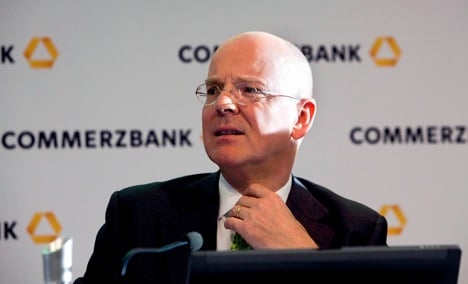The statement to the Handelsblatt newspaper came as the continent’s leaders battle to achieve true monetary union.
“During this time, there will be turbulence on the financial markets. That is the price for completing the currency union. I think that is acceptable,” Commerzbank boss Martin Blessing said.
Commerzbank, Germany’s second-biggest bank, has also suffered from this turbulence, its shares plunging 45 percent in three months.
On Tuesday the volatility continued as Germany’s DAX – the index of the country’s 30 leading blue-chip companies – appeared to be on track to lose about 1 percent compared to its previous day’s close of 5,246.18. Commerzbank was down more than 3 percent on the day.
In response to Germans angry that their taxes are being used to prop up debt-wracked eurozone countries, Blessing said: “The current debate in Germany is neither open nor fair. We want to have our cake and eat it. We want the euro, but we do not want the consequences.”
He said Germany should “pose the question the other way around, of how big the crisis would be if the currency union broke up.”
The best way to calm the markets now is for politicians to establish a
“binding timetable” to solve the problems, said Blessing.
AFP/mdm



 Please whitelist us to continue reading.
Please whitelist us to continue reading.
Member comments